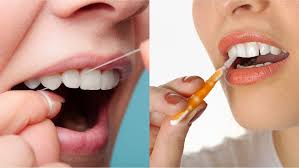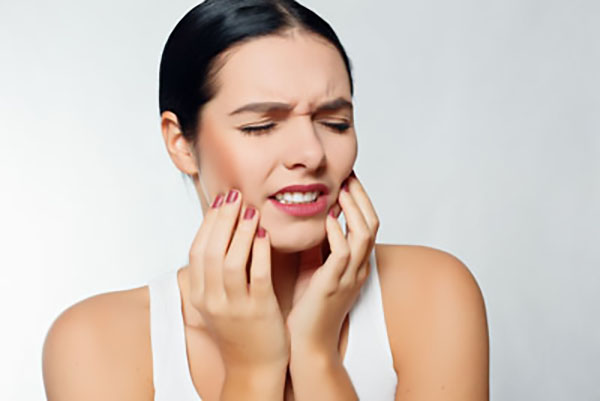Tooth sensitivity can make everyday activities like eating, drinking, and even breathing cold air uncomfortable. If you wince when you drink a hot coffee or bite into ice cream, you’re not alone—millions of people experience tooth sensitivity. At Dental Care Focus, we believe understanding this common dental issue and knowing how to manage it can greatly improve your quality of life. Let’s dive into what causes tooth sensitivity, effective relief strategies, and ways to prevent it from worsening.
What Causes Tooth Sensitivity?
Tooth sensitivity often occurs when the underlying layer of the tooth, known as dentin, becomes exposed. This exposure allows external stimuli, such as hot or cold temperatures, to reach the nerve endings within the tooth. Here are the most common causes:
- Enamel Erosion: The hard, protective layer of enamel wears down over time due to acidic foods, aggressive brushing, or age.
- Gum Recession: When gums pull away from the teeth, the sensitive roots of the teeth become exposed.
- Tooth Decay and Damage: Cavities, cracked teeth, or worn fillings can lead to sensitivity as they compromise the tooth structure.
- Teeth Whitening Products: Overuse of certain whitening treatments can temporarily or permanently weaken enamel, causing heightened sensitivity.
- Bruxism (Teeth Grinding): Consistent grinding or clenching can wear down enamel and increase sensitivity.
- Dental Procedures: Temporary sensitivity is common after dental treatments like fillings, crowns, or deep cleanings.
Symptoms of Tooth Sensitivity
If you have tooth sensitivity, you might experience sharp, sudden pain when:



Eating or drinking something hot, cold, or sweet.
Brushing or flossing
Breathing in cold air
The pain can range from mild discomfort to intense, lingering pain that affects multiple teeth.
Solutions for Tooth Sensitivity
Fortunately, tooth sensitivity can be managed and even prevented with the right care. Here are effective strategies to provide relief and minimize further damage:
1. Switch to a Desensitizing Toothpaste
Desensitizing toothpaste contains compounds like potassium nitrate or stannous fluoride, which help block the transmission of pain signals from the tooth surface to the nerve. Consistent use over several weeks can significantly reduce sensitivity.
Tip: Use it twice daily and avoid rinsing with water immediately after brushing to allow the toothpaste to work effectively.
2. Improve Your Brushing Technique
Aggressive brushing can wear down enamel and exacerbate sensitivity. To avoid this:
- Use a soft-bristled toothbrush.
- Brush with gentle, circular motions instead of harsh back-and-forth strokes.
- Avoid applying excessive pressure.
3. Use a Fluoride Mouthwash
Fluoride strengthens tooth enamel, making it more resistant to acid erosion and decay. Using a fluoride rinse daily can help build a stronger barrier against triggers that cause sensitivity.
Note: Look for alcohol-free options to prevent further drying of your mouth, which can irritate sensitive teeth.
4. Modify Your Diet
Limiting the intake of acidic foods and beverages—such as citrus fruits, soda, and vinegar-based products—can protect enamel and reduce sensitivity. If you do consume acidic items:
- Rinse your mouth with water afterward.
- Wait at least 30 minutes before brushing to avoid brushing softened enamel.
Pro Tip: Chew sugar-free gum containing xylitol to stimulate saliva production and neutralize acids in the mouth.
5. Use a Mouthguard if You Grind Your Teeth
Bruxism can cause significant enamel wear, leading to increased sensitivity. If you grind your teeth, especially during sleep, a custom mouthguard can act as a protective barrier to minimize damage.
6. Consider In-Office Treatments
If over-the-counter solutions aren’t enough, your dentist can offer professional treatments such as:
- Fluoride varnish applications: Applied to the surface of sensitive teeth, fluoride varnish helps strengthen enamel and reduce pain.
- Bonding agents: Sealants or bonding agents can be applied to cover exposed dentin.
- Gum grafts: For cases where gum recession has exposed tooth roots, a gum graft can be performed to cover the exposed area and protect the tooth.
7. Avoid Teeth Whitening Treatments
If you struggle with sensitivity, you may want to avoid or limit the use of teeth whitening products, both at-home and professional versions, as they can exacerbate the problem. Consult with your dentist for sensitivity-friendly whitening options or alternatives.

Preventing Tooth Sensitivity
Prevention is key when it comes to tooth sensitivity. Here’s how to safeguard your smile:
- Maintain Proper Oral Hygiene: Brush and floss regularly but gently, and ensure you’re using a toothpaste designed for sensitivity.
- Stay Hydrated: Drinking water throughout the day helps wash away food particles and acids.
- Schedule Regular Dental Visits: Routine check-ups allow your dentist to spot potential issues before they develop into more significant problems.
- Avoid Acidic Rinses: Certain mouthwashes contain acids that can worsen sensitivity over time. Always choose an alcohol-free, fluoride-based option.
- Manage Clenching and Grinding: Reducing stress and using a nightguard can help prevent enamel wear caused by grinding.
When to See a Dentist
If your sensitivity is severe or persistent, it’s essential to seek professional advice. Extreme cases may indicate deeper issues such as:
- Tooth decay or a cavity.
- A cracked or damaged tooth.
- Advanced gum disease.
Your dentist can diagnose the cause of your sensitivity and develop a treatment plan tailored to your needs.
Tooth sensitivity doesn’t have to disrupt your daily life. By taking a proactive approach and following these relief and prevention strategies from Dental Care Focus, you can manage sensitivity effectively and protect your teeth from future discomfort. Remember, consistent care and attention to your dental habits go a long way in keeping your smile pain-free and healthy.
Empower yourself with knowledge and take the steps to enjoy your favorite foods and drinks without worry. For lasting comfort, start incorporating these expert tips into your daily routine and visit your dentist for personalized recommendations.